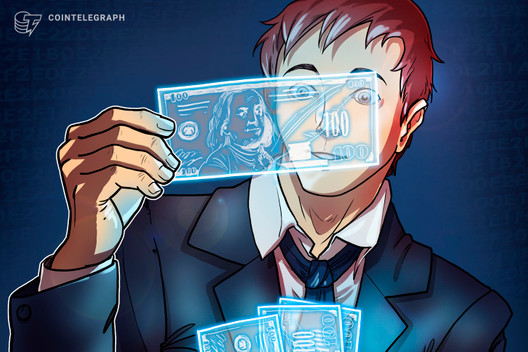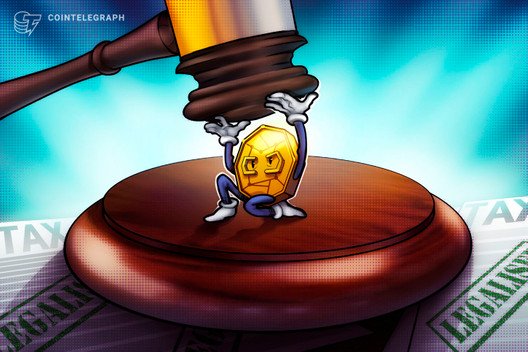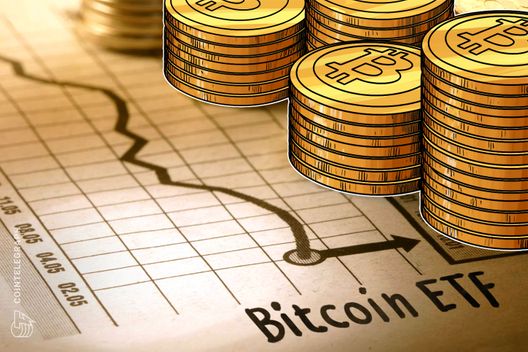Does Evergrande’s $300B debt crisis pose systemic risk to the crypto industry?
Amid speculation as to whether China’s second-largest property developer, Evergrande Group, will default on its $300 billion in debts, analysts are wondering whether the firm’s collapse could pose contagion risks for the crypto industry.
On Sept. 8, Fitch Ratings asserted it “appears probable” that Evergrande will default on its debts, with the firm having since conceded that it will be unable to sell properties or other assets in its possession quickly enough to service its rapidly mounting debts.
In a Tuesday statement, Evergrande predicts “significant continuing decline in contract sales in September, thereby resulting in the continuous deterioration of cash collection by the Group” and placing “tremendous pressure on the Group’s cash flow and liquidity.” The document added:
“In view of the difficulties, challenges and uncertainties in improving its liquidity as mentioned above, there is no guarantee that the Group will be able to meet its financial obligations.”
Australian economist David Llewellyn-Smith recently speculated that leading stablecoin issuer Tether may have exposure to commercial paper issued by the “$300bn debt monster,” warning that Bitcoin (BTC) may comprise one of Entergrande’s counterparties through Tether’s (USDT) dominance as a BTC pairing. Tether has denied this, however.
Tether’s latest attestation report suggested $30.8 billion of its $62.8 billion in assets are held in commercial paper, with the Financial Times estimating the company would rank among the instrument’s top 10 holders worldwide.
Despite Tether’s claims that it doesn’t hold any commercial paper issued by Evergrande, Cinneamhain Ventures partner Adam Cochran emphasized that an Evergrande default would “have a huge impact on the commercial paper market” broadly.
Onlookers fear that Evergrande’s collapse could have far-reaching implications for the commercial paper market, with Reuters describing the firm as “the biggest issuer of commercial papers” representing $32 billion worth of the asset as of late 2020.
“Currently both Tether and Circle hold commercial paper, and while I think it unlikely that either would have large swaths of Evergrande bonds, the whole market will reel a bit.”
“I do think both of those will still have more than enough wiggle room to prevent any actual meltdown, but if we have a meltdown that gets really bad, they certainly could get a bit off peg,” he added.
July audits of USD Coin (USDC) issuer Circle revealed that 9% of the firm’s assets were then held in commercial paper.
Related: USDC to consolidate reserves into cash and US treasuries
William Fong, a senior trader at Australian crypto investment firm Zerocap, predicts that Evergrande’s debt crisis will culminate in default and government intervention, suggesting the wholesale economic collapse some onlookers are anticipating is unlikely.
“More likely is that the group goes into administration and the fall is cushioned by the authorities,” he said, adding it’s highly unlikely that Evergrande bondholders will see full repayment.
Fong believes the potential fall-out for the crypto industry, should Evergrande default, remains to be seen, noting that some investors “may diversify away from traditional bond market allocations into less correlated asset classes.”
However, investors “could also shift funding into safe-haven assets such as U.S. Treasury debt,” he added.
Other analysts believe Evergrande is already causing havoc in the international markets, with Bloomberg’s Tracy Alloway noting that yields on junk-rated debt have spiked to their highest level since March 2020.
China Evergrande concerns are rippling through markets after the company halted trading of its onshore bonds,
– Shares of other Chinese property developers & banks are falling
– Yields on junk-rated debt spike to the highest since March 2020https://t.co/qHuXB37uNF by @SofiaHC1 pic.twitter.com/mmEExxnhnu— Tracy Alloway (@tracyalloway) September 16, 2021
According to anonymous local sources cited by Bloomberg, China’s Ministry of Housing and Urban-Rural Development has informed banks that Evergrande will not be meeting its repayments this coming week.
The sources claim Evergrande is still exploring whether it can obtain extensions or roll over some of its loans, adding that authorities in Guangdong have rejected a bailout request from the company’s founder.









